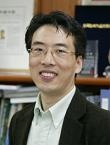Oct 30 2008
The California NanoSystems Institute at UCLA announces the arrival of visiting scientist Jinwoo Cheon, professor of chemistry at Yonsei University in Korea. With a focus in inorganic chemistry, materials chemistry and nano-medical science, Dr. Cheon brings over twenty years of experience and the promise of numerous, robust research collaborations.
 Jinwoo Cheon
Jinwoo Cheon
Dr. Cheon is the Division Head of the Nano-Medical National Core Research Center at Yonsei and the Director of Convergence Nanomaterials System, National Research Laboratory, as well as a junior member of the Korean Academy of Science and Technology.
"I am very excited to have this opportunity to work at CNSI and collaborate with leading researchers in a variety of fields," said Dr. Cheon.
Professor Cheon received invitations from other prestigious universities but chose to join CNSI at UCLA as a visiting scientist because of existing programs and vast opportunities to perform collaborative research with stellar faculty here.
"I chose CNSI-UCLA because of its world class research activities and opportunities for collaboration. I have met many UCLA faculty through CNSI whose research goals mesh with my own. I hope to cultivate good collaborative research projects during the next two years," explains Cheon. "Additionally, the support demonstrated by the state of California is truly encouraging and I feel confident that my research efforts at CNSI will have important impact."
Dr. Cheon's work on nanomaterials synthesis, involving the study of characteristics and composition of nanoscale phenomena, has lead to the development of material for use in biomedicine. One of his most noteworthy contributions in this area is the development of magnetic nanoparticles for use as imaging and therapeutic contrast agents. Magnetic nanoparticles possess interesting nanoscale phenomena including superparamagnetism, tunable coercivity and magnetic moment.
Cheon has developed a highly sensitive nanoparticle probe for use with MRIs for the early detection and diagnosis of cancer tumors. Cheon's probes are ten times more sensitive than conventional probes used today and will one day be used to detect specific tumor size and type. Upon conjugation with peptides or RNAs, these nanoparticles are versatile platform materials for a variety of applications including targeted imaging, drug screening, delivery, and therapeutics. Also, Cheon's research group is pioneering advances in PET-MRI dual mode imaging probe for more accurate in vivo diagnosis.
"Dr. Cheon's main goal in coming to the CNSI is to develop his research on nanomaterials synthesis for cancer diagnosis and treatment. He is already exploring possible collaborations with several of our members," said Leonard H. Rome, CNSI Interim Director. "The CNSI is very fortunate to have Dr. Cheon positioned here as a visiting scientist because he is a one of the world's leading scientists in nanotechnology in the area of nanomedicine because of the exciting work he has accomplished nanoparticles for ultra-sensitive multi-modal imaging."
"I am very hopeful that real progress will be made in the fight against cancer during my time at the CNSI," said Dr. Cheon. "I welcome the opportunity to meet UCLA researchers who are interested in collaborations and in exploring other potential uses of our nanomaterials".
This is, in fact, a return trip to UCLA for Dr. Cheon, he was a Staff Research Associate for the Department of Chemistry here from 1995 to 1998. His postdoctoral research was done at Lawrence Berkeley National Laboratory & University of California, Berkeley, and in 1993 he was a visiting researcher at AT&T Bell Labs in Murray Hill, NJ.
Dr. Cheon's position as a visiting scientist at UCLA grew from an agreement of academic exchange between Yonsei University and CNSI. CNSI actively exercises its commitment to fostering international partnerships for academic exchange with other world class nano institutes. David Lundberg, the Director International Partnerships at CNSI travels extensively to cultivate such partnerships across the world.
"It is worth noting that both UCLA and Yonsei University share similarities in their respective physical campuses in regard to the science disciplines," said Lundberg. "The medical school, engineering school and school of physical sciences at both universities are in close proximity to one another which is conducive for strong inter-disciplinary collaborations."
Yonsei University is the largest and most prestigious private university in Korea.
The CNSI continues to develop relationships with important academic and research institutions throughout the Pacific Rim to foster international nano-scale research collaborations. A growing number of alliances have been cultivated through an exchange of presentations at universities, institutes, and corporations in Korea, Japan, and Singapore. These are nations where nano research continues to be of a particular high quality and has received strong support from government and corporate sources. This initiative has led to numerous agreements and continued growth in this area is anticipated.